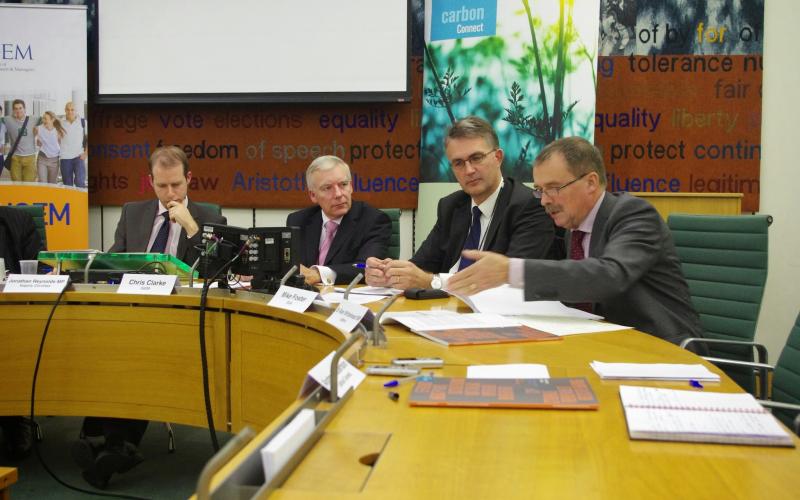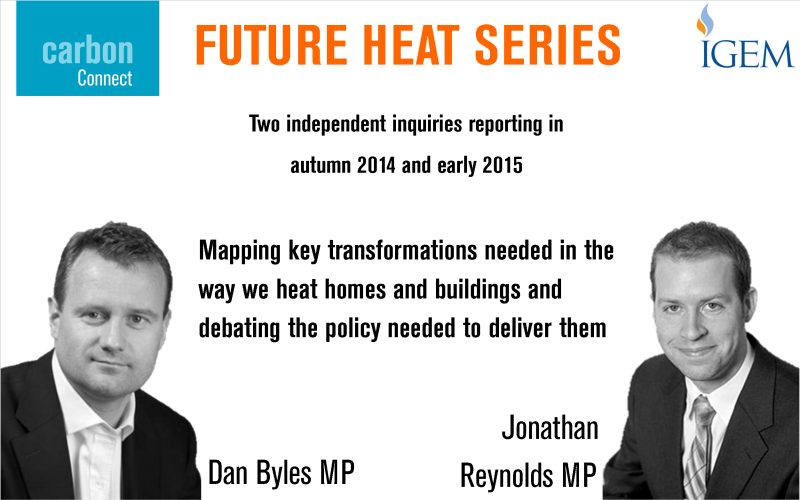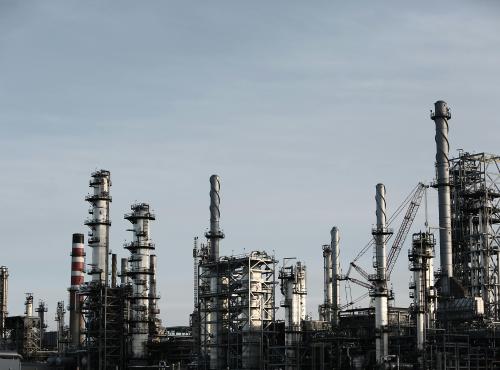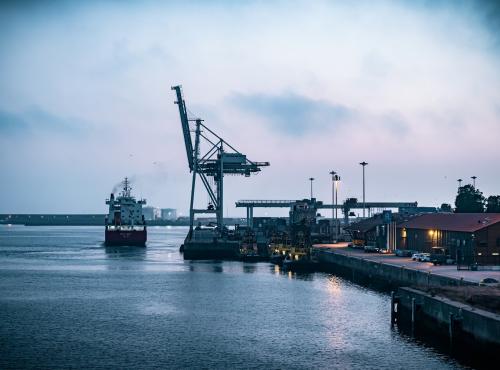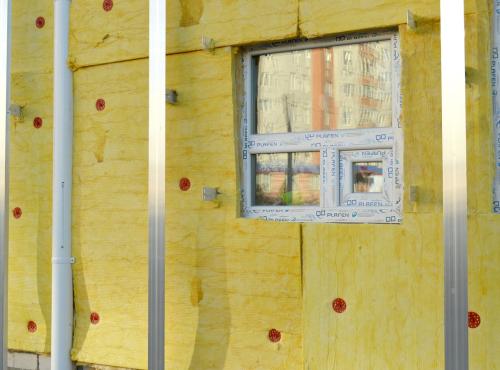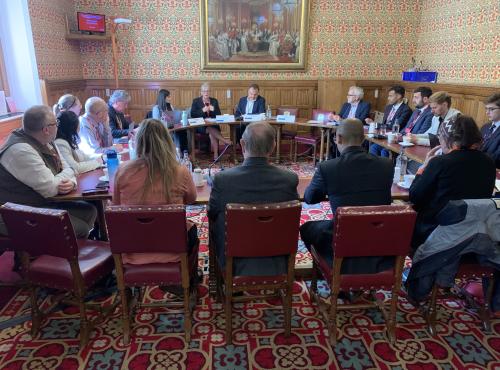Report: Future Heat Series Part 1 - Pathways for heat
Pathways for Heat: Low Carbon Heat for Buildings, calls on the next Government to set heat as a policy priority for the coming decade.
The report takes stock of what we understand today about the challenge of decarbonising heat for buildings by comparing six pathways for the sector to 2050 from a variety of different organisations (DECC, CCC, ETI, National Grid, UKERC, Delta EE).
Chaired by Shadow Energy Minister, Jonathan Reynolds MP, and Conservative member of the Energy and Climate Change Select Committee, Dan Byles MP, the report is written by cross-party think tank group, Carbon Connect. The report was published in Parliament at a cross-party debate on Monday, 17th November.
Sponsored by Energy & Utilities Alliance (EUA) and the Institution of Gas Engineers and Managers (IGEM), the report is the first in a cross-party and independent inquiry series.
- About the Future Heat Series
- Future Heat Series 1 Inquiry launch conference
- Pathways for heat press release
Summary
Together, the pathways examined in the report paint a picture of the nationwide transformation getting underway in how we heat our homes and buildings. The report identifies that by 2050, gas used to heat buildings could fall by 75-95%, electricity increase from a 10% share today to 30-80%, and district heat increase from less than 2% to up to a 40% share.
At the same time, energy efficiency could help to lower bills and offset the expected growth in our heating needs from an expanding population and building stock.
Across most pathways examined in the report, mass deployment of low carbon heat solutions ramps up in the lead-in to 2030. Carbon Connect’s overarching recommendation is that the next decade should be spent preparing by developing a robust strategy for decarbonising heat in buildings whilst testing and scaling up delivery models.
The report calls for the next Government to prioritise these preparations in the same way that preparing for power sector decarbonisation has been the overriding focus of energy policy in the past decade.
The Future Heat Series brings together politicians, policy and academic experts, and industry leaders. Together, this coalition of key figures is taking stock of evidence, progressing the policy debate in an open and constructive forum and building consensus for prioritising and transforming heat. Pathways for Heat is the first part of the Future Heat Series and presents six recommendations and over twenty findings.
Reaction
“This report is an important contribution to the debate about the future of heat policy in Britain. If we are to meet our carbon reduction commitments, we need to think about how we use energy and heat our homes. I welcome Carbon Connect’s report and commend the cross-party, evidence-based and constructive approach they’ve taken.”
Jonathan Reynolds MP
“It’s been a pleasure working with Carbon Connect, Jonathan and the expert steering group on this inquiry and two points have stood out. Firstly, there is no one solution to cutting emissions from heating homes and buildings, instead we have a range of options including energy efficiency, gas heating, electric heating and district heating. Secondly, now is the time to step up our efforts, prioritise and prepare for transforming the way we heat our homes and buildings.”
Dan Byles MP
“What remains unclear from this report is whether any of the six possible pathways are right for the UK, what impact they would have on carbon emissions and the feasibility of implementing them.
Gas remains popular with consumers, is highly efficient and is the cleanest fossil fuel. The UK gas network has a long and proven history of safely transporting gas and delivering it to where it is needed, when it is needed.
IGEM believes that the UK gas industry has the potential to adapt to the changing environment developing new and innovative ways to reduce its carbon emissions, as it has done in the past.
More research is needed to understand how the gas network will contribute to a low carbon future. IGEM will continue to ensure that the gas sector is consulted and has the opportunity to contribute to future energy policy.”
Sarb Bajwa, CEO of IGEM
“This report is most welcome as it adds to the weight of evidence policymakers have outlining the huge challenge the UK faces in reducing greenhouse gas emissions, keeping secure energy supplies and ensuring we can all afford to heat our homes. At the heart of the debate will be the future role of gas, the part that installers can play in helping consumers choose and the need for politicians to spell out more clearly the implications for all of us.”
Mike Foster, CEO of EUA
The Future Heat Series is kindly sponsored by IGEM.
The first inquiry of the series is kindly sponsored by the Energy & Utilities Alliance.
